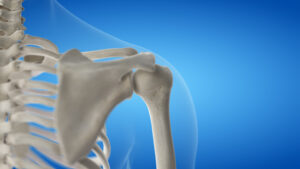
16 May Why Does My Shoulder Hurt? (And What Should I Do?)
Did you know that your shoulder is one of the more complicated joints in your body? It’s a ball-and-socket joint, like your hip. Yet the shoulder isn’t as stable as the hip joint. Due to location and structure, the hip is more stable and the shoulder can have other issues and injuries the hip doesn’t.
Shoulder pain is a very common complaint and it can vary from annoying to debilitating. As with all orthaepedic conditions, shoulder pain can be caused by many different things.
Reasons for shoulder pain:
- Injury like a fall, sports, or car accident
- Arthritis
- Age-related mobility problems
- and others
Common Shoulder Conditions/Injury:
- Torn or irritated rotator cuff
- Torn or irritated labrum
- Frozen shoulder
- Arthritis
- Dislocation and/or instability
Depending on the reason for your shoulder pain, you may notice:
- Sharp or dull pain, or aching
- Pain with movement
- Pain at rest
- Pain when lying on the affected shoulder
- Limited range-of-motion
- Pain with specific movements
- Stiffness
- Limited movement
Unfortunately, without an assessment, it’s hard to know what’s causing your shoulder pain and the best treatment. If your shoulder pain is mild and not resulting from an injury, you can try resting and icing for a few days to see if symptoms decrease. For those with persistent, serious, or new shoulder pain – especially resulting from an injury- it’s important to identify what’s going on so you can begin quick treatment for a faster recovery.
An assessment with a physical therapist will involve taking a detailed history, talking to you about your symptoms, job, sports, etc. that might affect your condition, and a physical examination. Your physical therapist will then make a determination about what is likely causing your shoulder pain; if your PT thinks that more testing is needed, such as imaging, they will also make a recommendation at this time. Depending on the exact nature of your shoulder issues, your PT may work to improve movement and reduce discomfort through manual (hands on) therapy as well as having you perform specific exercises. You’ll also likely receive their recommendation for treatment and a home exercise program to work on between in-office visits.
Shoulder pain can really slow you down and affect how your work and play. That’s why it’s important to address as quickly as possible! Visiting a physical therapist is a great way to help figure out what’s going on with your shoulder and get started on treatment. If you have a more complicated issue that may require imaging or invasive treatment, your PT will recommend that, too.
At Body One Physical Therapy, we treat shoulders every single day! From post-surgical shoulders, to old injury, to injury screens, to mystery pain, and beyond, our team of expert orthopaedic providers is ready to help you feel better. We have three convenient north Indy locations to better serve you: Fishers, North Meridian, and Zionsville. Call or click today for more information!









